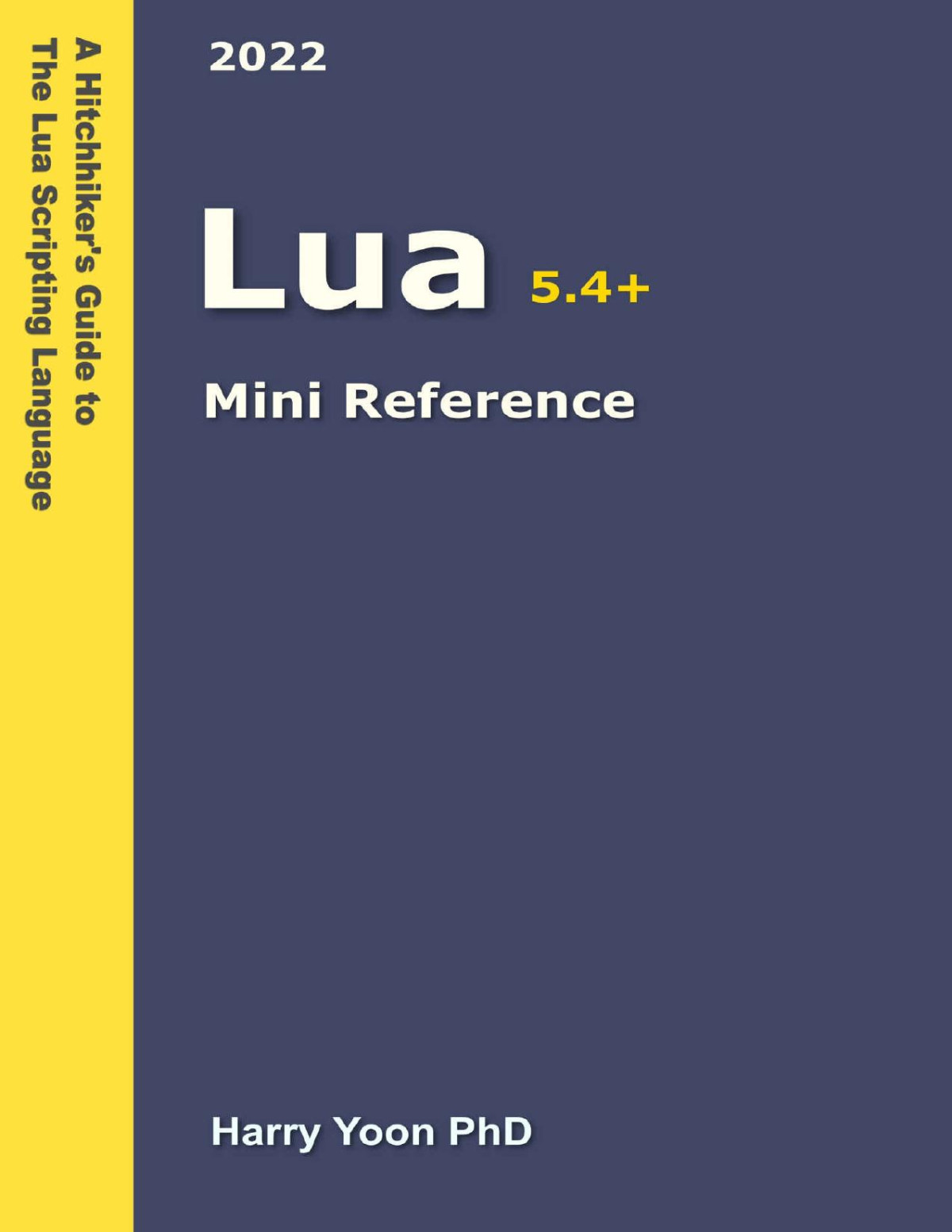

Most ebook files are in PDF format, so you can easily read them using various software such as Foxit Reader or directly on the Google Chrome browser.
Some ebook files are released by publishers in other formats such as .awz, .mobi, .epub, .fb2, etc. You may need to install specific software to read these formats on mobile/PC, such as Calibre.
Please read the tutorial at this link: https://ebookbell.com/faq
We offer FREE conversion to the popular formats you request; however, this may take some time. Therefore, right after payment, please email us, and we will try to provide the service as quickly as possible.
For some exceptional file formats or broken links (if any), please refrain from opening any disputes. Instead, email us first, and we will try to assist within a maximum of 6 hours.
EbookBell Team

4.7
96 reviewsLearn Lua Programming in a Weekend!
This book is a mini language reference on the Lua programming language. Lua is one of the "smallest" and simplest programming languages, and it is widely used as a scripting language in many applications, including various game engines such as Roblox. Lua is a "beginner-friendly" programming language. We go through all important features of Lua, as a standalone coding language in this book.
Although the book is written as a reference, you can read it more or less from beginning to end and you should be able to get the overall picture of the Lua language if you are familiar with some basic syntax of Lua. The book also includes all essential builtin functions and the standard library functions.
The book covers
Lua standalone interpreter. How to effectively use the Lua REPL.
Lua program execution. How to run the lua command in various ways.
Types, literals, variables. How to assign values to local variables and reference them.
Expressions. For example, how to do simple arithmetic and comparison operations.
Functions. How to define a named and unnamed functions, and how to call these functions.
Statements, such as the if conditional and the for, while, and repeat iteration statements.
Tables. And, various uses of tables as a map and an array, etc.
Metatables. How to customize the behavior of tables using metamethods.
Basic object-oriented programming (OOP) in Lua. Factory methods and classes.
Iterators. How to customize the iteration behavior of tables.
Concurrency. Various coroutine methods for thread lifetime management.
Lua standard libraries: math, string, table, os, io, file, and coroutine.